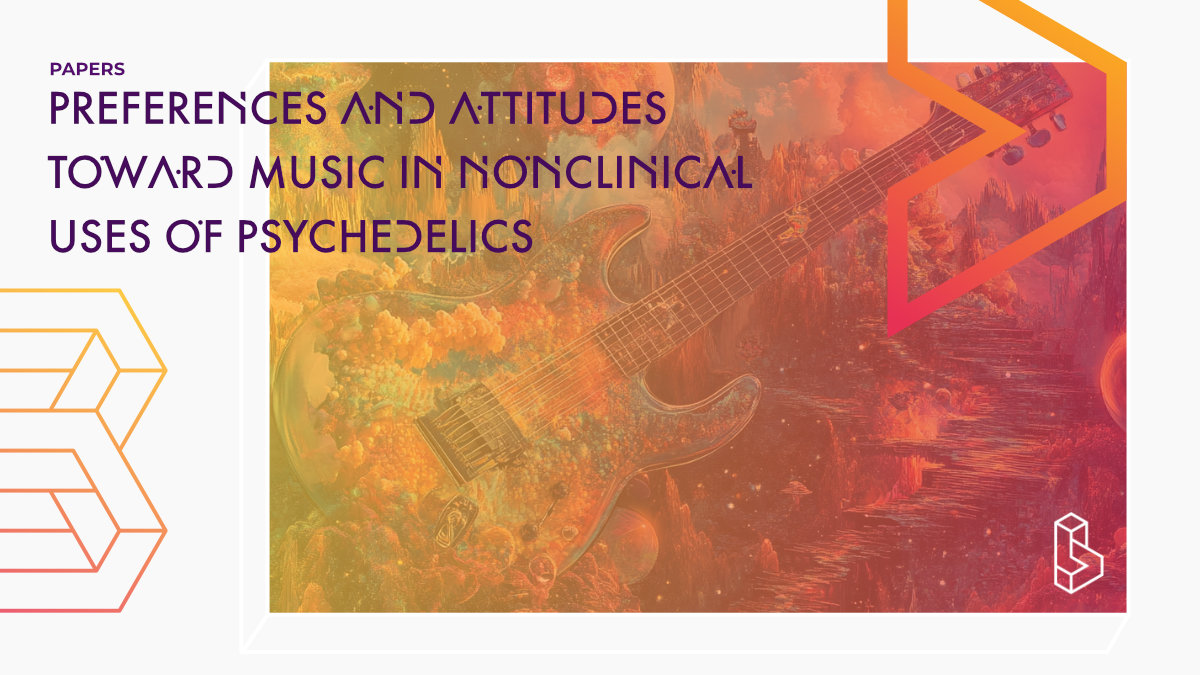This cross-sectional survey (n=2000+) from the Canadian Psychedelic Survey explores the interplay between music and 11 classical and non-classical psychedelic substances in non-clinical settings. It finds most respondents report therapeutic benefits and enjoyment from music during psychedelic use, though benefits vary by substance. Only 10% and 22% support using unfamiliar music and music without understandable lyrics, respectively, suggesting current guidelines may need more nuanced, substance-specific research.
Abstract of Preferences and Attitudes Toward Music in Nonclinical Uses of Psychedelics
“Background: The resurgent interest in psychedelic-assisted therapy for conditions like depression, end-of-life anxiety, and post-traumatic stress disorder is generating highly promising results. Within this therapeutic context, music’s role is multifaceted, seen as a critical environmental component and even akin to a hidden therapist. Contemporary clinical protocols often advocate for music that is lyric-free and unfamiliar, yet these guidelines are based on limited empirical evidence.
Methods: Our study, drawing on data from over 2,000 participants in the Canadian Psychedelic Survey (CPS), explores the interplay between music and 11 classical and non-classical psychedelic substances in predominantly non-clinical usage scenarios. This cross-sectional survey included 14 questions delving into patterns of psychedelic use and music preferences in naturalistic environments.
Results: Our findings reveal that a substantial majority of respondents experienced both therapeutic benefits and enjoyment from integrating music with psychedelic substances, although the extent of these benefits varied significantly across different substances.
Discussion: Contrary to clinical recommendations, only 10% and 22%, respectively, of survey respondents agreed that music for psychedelic experiences should be unfamiliar and without understandable lyrics. Furthermore, our data suggest potential unique benefits of psychedelic experiences devoid of music, particularly with the shortest and longest acting substances. These insights indicate that the prevailing guidelines for music selection in psychedelic therapies may benefit from further, nuanced research into substance-specific effect.”
Authors: Sara G. Gloeckler, Alexandre Lehmann, Sara de la Salle, Kyle T. Greenway & Philippe Lucas
Summary of Preferences and Attitudes Toward Music in Nonclinical Uses of Psychedelics
Full summary will follow soon.
Find this paper
Preferences and Attitudes Toward Music in Nonclinical Uses of Psychedelics
https://doi.org/10.1089/psymed.2024.0003
Paywall | Google Scholar | Backup | 🕊
Cite this paper (APA)
Gloeckler, S. G., Lehmann, A., de la Salle, S., Greenway, K. T., & Lucas, P. (2024). Preferences and Attitudes Toward Music in Nonclinical Uses of Psychedelics. Psychedelic Medicine.

